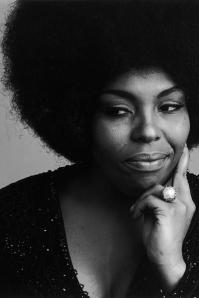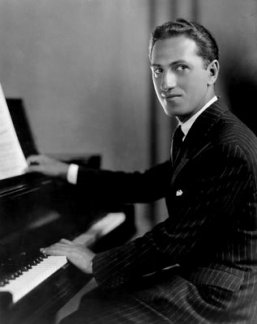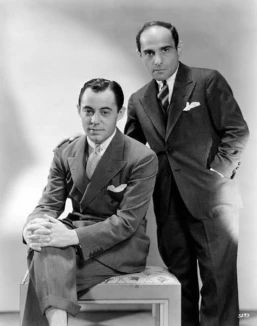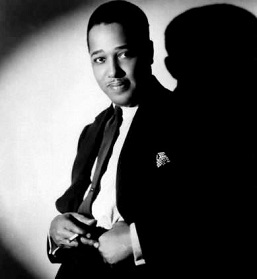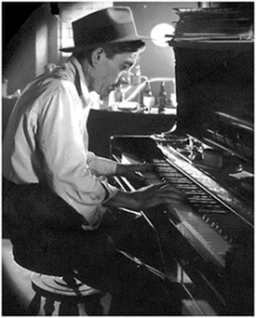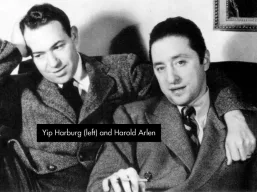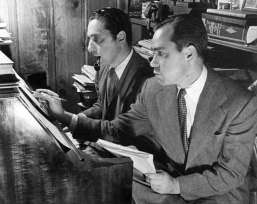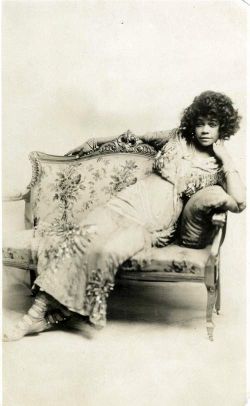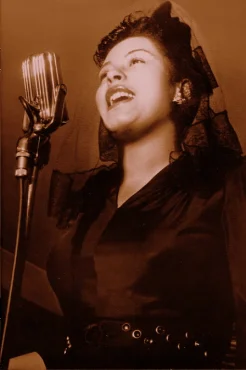The First Time Ever I Saw Your Face — selected early recordings, 1962-1972
_______________________
The First Time Ever I Saw Your Face (Ewan MacColl) — 1957
- Ewan MacColl (Wikipedia)
- EwanMacColl.co.uk
- PeggySeeger.com
- “Daddy, What Did You Do In the Strike?” – Ewan MacColl and Peggy Seeger documentary
selected links, song:
- Wikipedia
- SecondHandSongs
- Songfacts
- lyric, original — AZLyrics
- lyric, Roberta Flack version — AZLyrics
From Wikipedia:
There are two differing accounts of the origin of the song. MacColl said that he wrote the song for Seeger after she asked him to pen a song for a play she was in. He wrote the song and taught it to Seeger over the telephone.[2] Seeger said that MacColl, with whom she had begun an affair in 1957, used to send her tapes to listen to whilst they were apart and that the song was on one of them.[3]
The song entered the pop mainstream when it was released by the Kingston Trio on their 1962 hit album New Frontier and in subsequent years by other pop folk groups such as Peter, Paul and Mary, The Brothers Four, the Chad Mitchell Trio and Gordon Lightfoot.
From a Lyric of the Week article, written by Jim Beviglia, published in American Songwriter magazine on 26 October 2015:
Seeger confessed to Mojo that she wasn’t keen on [Roberta] Flack’s famous take on the song, even if she appreciated the royalties they brought in to her as MacColl’s widow. And MacColl’s own thoughts on the many versions of the song, even the King’s, were less than sanguine. According to his daughter-in-law Justine Picardie in the Michael Brocken book The British Folk Revival 1944-2002, “He hated all of them. He had a special section in his record collection for them, entitled ‘The Chamber of Horrors.’ He said that the Elvis version was like Romeo at the bottom of The Post Office Tower singing up to Juliet. And the other versions, he thought, were travesties: bludgeoning, histrionic, and lacking in grace.”
Ewan MacColl and Peggy Seeger — from the 1962 LP The New Briton Gazette, Vol. 2, Folkways Records FW 8734
.
.
The Kingston Trio — released, under the title “The First Time,” on the 1962 album New Frontier, (US) Capitol T 1809 (Mono), Capitol ST 1809 (Stereo)
.
Joe & Eddie — from the 1963 album There’s a Meetin’ Here Tonite, GNP Crescendo GNP 86 (Mono), GNP 86, GNPS 86 (Stereo)
Of the group, Wikipedia says:
The musical duo’s focus was creating harmony with Joe Gilbert singing tenor and Eddie Brown singing baritone. Their style incorporated gospel, folk tunes, and blues with a little jazz flavor. Their songs contained a minimum of background instrumentals, since the “main objective was to focus on Joe & Eddie’s singing…”[1] The duo was known for their rapid-fire delivery and vocal improvisations, as heard in the songs “Green Grass” and “Children Go.”
.
Orriel Smith — from her 1964 album A Voice in the Wind, Columbia CL 2124 (Mono), Columbia CS 8924 (Stereo)
.
The Highwaymen — from the 1964 album One More Time!, United Artists Records UAL 3323 (Mono), UAS 3323 (Stereo) — Although the whole group is credited, the recording features a vocal soloist (presumably leader Dave Fisher), accompanied by what seems to be a single acoustic guitar.
From the 2010 Dave Fisher obituary at The Guardian:
Throughout their career, Fisher was the Highwaymen’s main musical inspiration. He chose the songs, arranged them and, with a great tenor voice, was the lead singer. The other members had ambitions outside music – one of them, Steve Trott, became a federal appeals court judge – and in 1964, the Highwaymen disbanded, amicably.
artist link:
- The Highwaymen (folk band) — Wikipedia
.
Peter, Paul and Mary — from their 1965 album See What Tomorrow Brings, Warner Bros. Records W 1616 (Mono), WS 1616 (Stereo)
.
Peter, Paul and Mary — from a 1965 BBC Tonight in Person special
.
Marianne Faithfull — (version 1) from her album North Country Maid, (UK) Decca LK 4778, issued on 1 April 1966
.
Marianne Faithfull — (version 2) from the 1966 compilation album Forever Faithfull, (US) London Records LL3482 (Mono), PS 482 (Stereo)
.
Gordon Lightfoot — from his debut album, Lightfoot!, (US) United Artists Records UAS 6487, released in 1966
From Wikipedia:
In 1965 Lightfoot signed a management contract with Albert Grossman, who also represented Bob Dylan. That same year, he signed a recording contract with United Artists and released his own version of “I’m Not Saying” as a single. Appearances at the Newport Folk Festival, The Tonight Show Starring Johnny Carson, and New York’s Town Hall increased his following and his reputation. In 1966, he released his debut album Lightfoot!, which brought him increased recognition as both a singer and a songwriter. It featured many now-famous songs, including “For Lovin’ Me,” “Early Mornin’ Rain,” “Steel Rail Blues,” and “Ribbon of Darkness”. On the strength of the Lightfoot! album, which mixed Canadian and universal themes, Lightfoot became one of the first Canadian singers to achieve real stardom in his own country without having to move to the United States.
.
Bert Jansch — from his album Jack Orion, (UK) Transatlantic Records TRA 143, released in September 1966
.
We Five — from the 1967 album Make Someone Happy, A&M Records LP 138 (Mono), A&M Records SP 4138 (Stereo)
From the Wikipedia page on We Five:
After completing their second album, Make Someone Happy, later in 1966, lead singer Beverly Bivens decided to leave the group. The group had a hit from this album in 1967 with its arrangement of the popular Kingston Trio folk tune “Let’s Get Together,” which reached #31 on the Billboard Hot 100 (and was later a Top Five hit and a million-seller for The Youngbloods as “Get Together”). To continue, We Five replaced Bivens with Debbie Graf Burgan (wife of guitarist Jerry Burgan) and added a full-time drummer in Mick Gillespie for live performances.
.
The Brothers Four — from their 1967 LP A New World’s Record, Columbia CS 9502; the group also issued a recording of the song, presumably the same one, as the B-side of “Walking Backwards Down the Road,” on the single Columbia 4-44175
artist links:
.
Roberta Flack — originally issued in 1969 on her debut album, First Take, Atlantic SD 8230
Wikipedia says:
Les McCann discovered Flack singing and playing jazz in a Washington nightclub.[3] He later said on the liner notes of what would be her first album First Take noted below, “Her voice touched, tapped, trapped, and kicked every emotion I’ve ever known. I laughed, cried, and screamed for more…she alone had the voice.” Very quickly, he arranged an audition for her with Atlantic Records, during which she played 42 songs in 3 hours for producer Joel Dorn. In November 1968, she recorded 39 song demos in less than 10 hours. Three months later, Atlantic reportedly recorded Roberta’s debut album, First Take, in a mere 10 hours.[5] Flack later spoke of those studio sessions as a “very naive and beautiful approach… I was comfortable with the music because I had worked on all these songs for all the years I had worked at Mr. Henry’s.”
Flack’s cover version of “Will You Love Me Tomorrow” hit number seventy-six on the Billboard Hot 100 in 1972. Her Atlantic recordings did not sell particularly well, until actor/director Clint Eastwood chose a song from First Take, “The First Time Ever I Saw Your Face,” for the sound track of his directorial debut Play Misty for Me; it became the biggest hit of the year for 1972 – spending six consecutive weeks at #1 and earning Flack a million-selling Gold disc.[9]
.
Nana Mouskouri with the Athenians — from the 1969 album Over & Over, on the Fontana label
.
Roberta Flack — abbreviated version, the so-called “radio edit,” issued on the February 1972 single Atlantic 45-2864, b/w “Trade Winds”
US singles chart performance (Billboard):
- #1, Easy Listening, 6 consecutive weeks, 1 April-6 May 1972
- #1, Hot 100, 6 consecutive weeks, 15 April-20 May 1972
.
Roberta Flack — from the British music TV series Top of the Pops, 1972
This version, apparently sung live, is about a minute shorter than the 1972 single
.
Johnny Hartman — from the 1972 album I’ve Been There, Perception Records PLP 41 (also PLP-41)
.
Ray Conniff and the Singers — from the 1972 LP Love Theme From “The Godfather” (Speak Softly Love), which was issued in the UK under the title Without You
_____________________
selected instrumentals
Tony Hatch & his Orchestra — from the 1972 album Hits Symphonic, (UK) Pye Records QUAD 1017
.
Dexter Gordon Quintet — recorded at Rudy Van Gelder Studio, Englewood Cliffs, NJ, on 22 June 1972; issued on the 1973 Dexter Gordon album Ca’ Purange, Prestige PR 10051
album personnel:
Dexter Gordon – tenor saxophone
Thad Jones – trumpet, flugelhorn
Hank Jones – piano
Stanley Clarke – bass
Louis Hayes – drums








